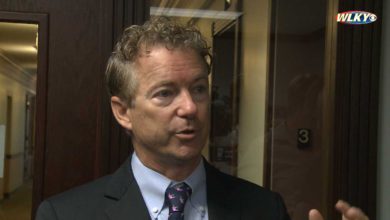WASHINGTON – The Supreme Court declined Monday to decide whether Wisconsin's governor violated the First Amendment when he barred a conservative think tank from attending news conferences in a case that raised questions about media freedom and the type of organizations that should be considered news outlets.
The Madison-based John K. MacIver Institute for Public Policy, a self-described think tank that "promotes limited government" sued Wisconsin Gov. Tony Evers in 2019 after the Democrat declined to invite its writers to attend a briefing about the state budget. Evers' office asserted that MacIver is "not principally a news organization."
MacIver's appeal arrived at the Supreme Court as other government entities have wrestled with how to define a reporter when the internet often blursthe line and advocacy journalism has proliferated in state capitals and Washington.
"The First Amendment exists to protect the rights of the people, not the convenience of the politicians," the institute told the Supreme Court in its appeal. "When in doubt, this court should prefer the rights of journalists to question elected officials."
MacIver asserted that the First Amendment's press clause requires government officials to restrict access to news briefings only in limited circumstances: when the restriction serves a compelling state interest that is addressed in the narrowest possible way. Evers' aides, the group argued in court papers, did not meet that high standard.
Ruling against the group, a panel of the Chicago-based U.S. Court of Appeals for the 7th Circuit looked at the case through a different lens, deciding that the governor's office did not create a "public forum" by inviting "a limited number of journalists to its press conferences." The panel wrote that other news outlets that are widely considered to be conservative were invited to the state budget briefings.
MacIver describes itself on its website as a "Wisconsin-based think tank that promotes free markets, individual freedom, personal responsibility and limited government."

The appeal implicated a different section of the Constitution than what was raised in 2018 when the White House, under President Donald Trump, pulled credentials from CNN reporter Jim Acosta. A federal district judge in that case said the White House violated the reporter's Fifth Amendment right to due process.
MacIver argued in court papers that it should be treated like other media outlets because it routinely covers legislative meetings and other events in the state Capitol. MacIver's writers have attended some of Evers' news conferences but have been kept in the dark about others and were left out of budget briefings.
Contributing: Milwaukee Journal Sentinel
Source link









